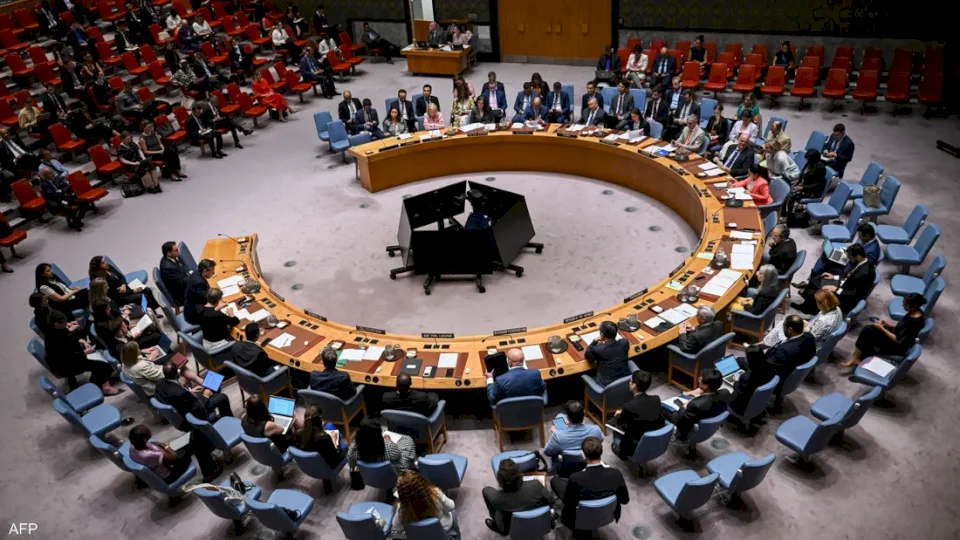
The Security Council Discusses Washington's Proposal: An International Force and a Path to a Palestinian State
SadaNews - As disagreements escalate between Washington and Tel Aviv regarding the American draft resolution related to the Gaza Strip, the United Nations Security Council is preparing to vote on Monday evening on the American draft resolution composed of 11 paragraphs. This draft is based on the 20-point plan from U.S. President Donald Trump to stop the war in Gaza and proposes the deployment of an international stabilization force to replace the Israeli army upon its entry into the sector, in addition to forming a peace committee headed by Trump to temporarily manage Gaza until the end of December 2027.
What does the draft of this American resolution include?
The United States has prepared a draft resolution regarding the international force, consisting of 11 paragraphs, based on President Donald Trump’s 20-point plan to stop the war in Gaza, which is supposed to allow this force to replace the Israeli army immediately upon its entry into the sector.
The draft resolution stipulates the permission to deploy an "international stabilization force" in the Palestinian sector and grants a "peace committee" that is expected to be chaired by Trump the authority to temporarily manage Gaza until the end of December 2027, according to the French news agency.
It also includes establishing a ceasefire, emphasizing in the first clause the necessity of maintaining the ceasefire agreement by the nations that signed it.
A Palestinian State
While the second clause contains a notable amendment, stipulating that after the completion of the reforms within the Palestinian Authority and progress in the redevelopment of Gaza, the necessary conditions for a reliable path towards Palestinian self-determination and the establishment of a Palestinian state may be available.
The clause also mentioned that Washington will create a dialogue path between Israel and the Palestinians to agree on a political horizon that guarantees peaceful and prosperous coexistence. The same clause witnessed another amendment, confirming that the peace committee will act as a transitional administration, not a transitional government.
Humanitarian Organizations
The third clause saw the removal of the paragraph stating that any organization proven to have misused aid is deemed ineligible to receive any future or continued support.
Amendment to the Fifth Clause
The term "transitional" has been added to describe the supervising authority, as the draft specifies that the operational entities in the sector will work under the authority and supervision of the transitional peace council, with funding provided through voluntary contributions from donors and funding mechanisms from the peace council and governments.
Israeli Withdrawal
Moreover, amendments were made to the seventh clause relating to the Israeli withdrawal from Gaza, indicating that the withdrawal will commence with the international force achieving control and stability.
Previously, it had been stipulated that "Israeli forces will withdraw according to criteria, phases, and timelines related to the disarmament process, agreed upon between the Israeli army and the international force, and the guarantors and the United States, while maintaining surrounding security presence until any renewed terrorist threat is eliminated."
Amendments to the American draft resolution were published last Thursday for the third time.
Meanwhile, Israeli political sources have noted that the new American proposal contains provisions "unfavorable to Israel," such as mentioning a path for the Palestinian state, and a clause that deprives it of the right to oppose countries that will send peacekeeping forces, according to the "Yedioth Ahronoth" newspaper. An Israeli security official stated, "We will not withdraw from Gaza until we are sure that not a single gun can be directed again towards Israel."
It is noteworthy that the passage of the American project requires obtaining the support of nine votes and not having any of the permanent members of the Security Council (Russia, China, France, Britain, and the United States) use the veto. A Security Council decision could effectively represent a transition to the second phase of the U.S.-backed agreement reached last October, which led to a ceasefire after two years of war.

Israeli Estimates: The Iranian Ballistic Threat Will Remain and the Rate of Its Attacks Wi...

The Hague Group Holds an Emergency Meeting on March 4, 2026, Regarding Accountability and...

The President to His Lebanese Counterpart: We Support Any Steps Taken by Lebanon to Achiev...

Report: America Begins Attacking Iranian Nuclear Targets

Rutte Praises the War on Iran but Confirms NATO's Non-Involvement

"No Backing Down and Good Luck".. Behind the Scenes of Trump's Final Decision to Strike Ir...

Israeli Chief of Staff: We Will Not End the Battle Before Eliminating the Threat from Leba...

